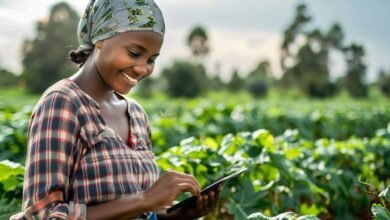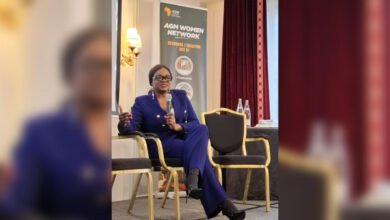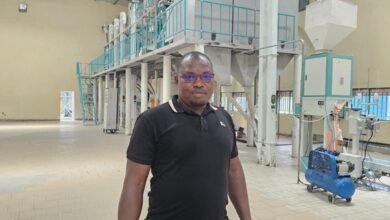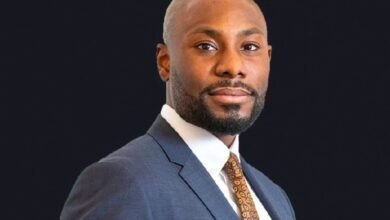Ferdinand Ngon Kemoum, Managing Director of Oragroup : “SMEs have the capacity to adapt most quickly to change”
Banking institutions are often accused of not giving SMEs enough support, yet they are often the first to finance them. As Ferdinand Ngon Kemoum, Managing Director of Oragroup, explains, Orabank is a bank that is "more SME-oriented".
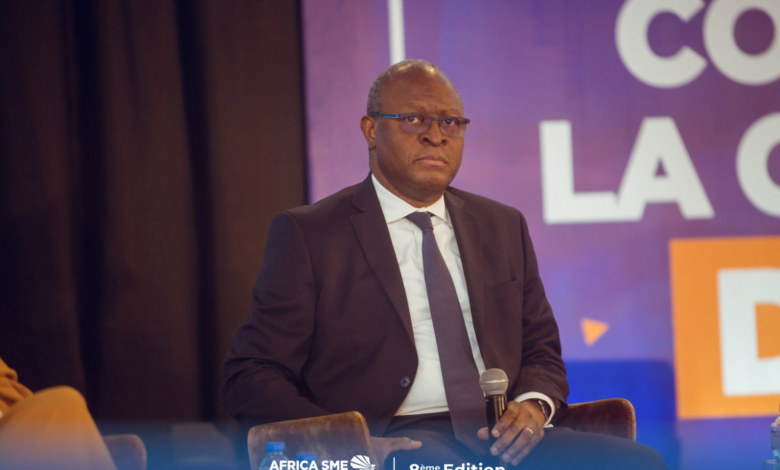
Interview with Dounia Ben Mohamed, Lomé
To what extent is Orabank what you call an SME-oriented bank?
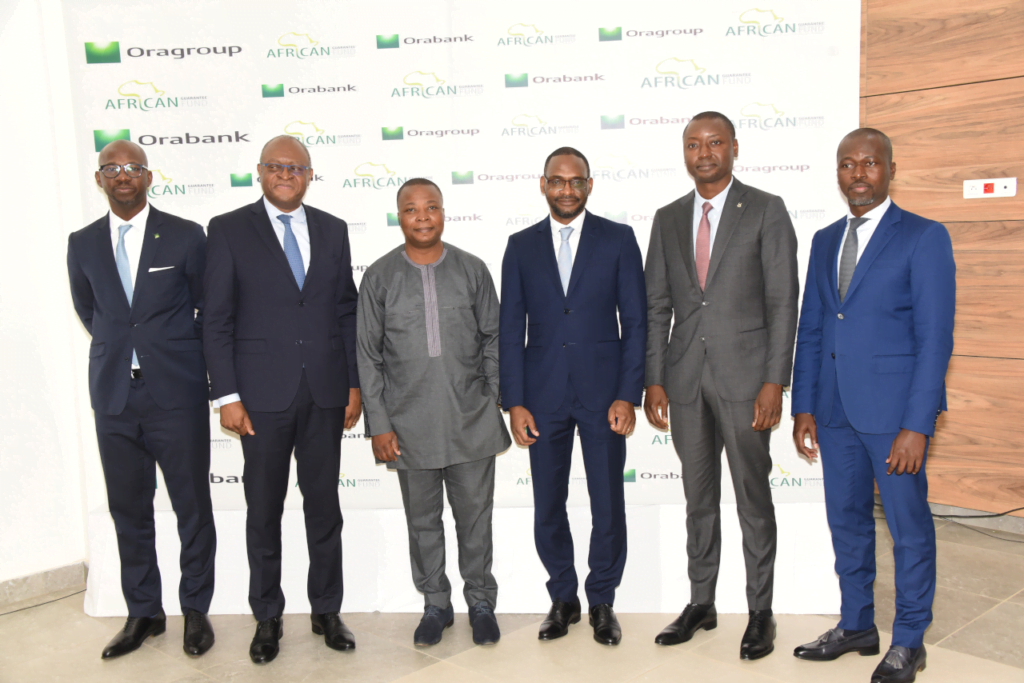
We are indeed billed as an SME bank. There’s a historical reason for that. The group was originally founded by a French entrepreneur who acquired five banks by 2008, before selling the banking platform to Emerging Capital Partners (ECP) in 2009, which retained this SME-oriented banking DNA. The portfolio has since diversified to include large corporates, individuals and governments. But from the outset, the bank’s aim was to be agile. And agility means SMEs. We talk a lot about the difficulties SMEs face, but we don’t emphasise their agility enough. It’s SMEs that have the ability to adapt most quickly to change.
Traditional banking institutions are often criticized for not providing enough support to African SMEs, which are seen as « fragile » and therefore « risky ». What mechanisms does Orabank provide for SMEs?
At the heart of the matter is the question of how we can support actors that are fragile but also agile. It’s a mindset that international donors and banks (and I’m making this recommendation for myself) need to change. So perhaps it’s the question of the agility of SMEs that we need to address in order to better support them by offering them financing and support schemes that take their agility into account. We have tried to maintain this agility within the Orabank Group by putting in place mechanisms for monitoring SMEs, by putting in place something that all banks do – it’s not unique to Orabank – what we call structured credit programs to deal with a particular category of SMEs in a particular sector or in a particular activity. This makes it possible to ‘industrialize’ the lending process. For example, by setting up a standardized procedure for all SMEs in the construction and public works sector.
The other innovation we have started to work on pertains to everything that has to do with resilience and the fight against global warming, because here we need this agility, new initiatives and we need to use the know-how of the African people, a know-how that is very important. In everything that has to do with recycling, maintenance, water treatment… we have knowledge that is sometimes thousands of years old that needs to be brought up to date. And I think it’s the SMEs that can do that.
You yourself are considered an « SME » when you go to international markets, but you operate in a complex environment that penalizes SMEs in two ways… How can you change this?
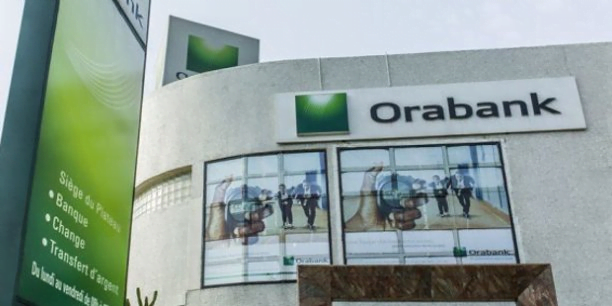
Absolutely. There is clearly a volume effect to be sought. We don’t have the volume to create economies of scale. We don’t have the volume because Africa as a whole is underfinanced. We are financial intermediaries, which means that we raise money on the left so that we can lend it on the right. And we have to meet a certain number of criteria. If I raise 100, the criteria say I can finance a maximum of 80, whereas if we raise 1,000, I can finance 800. There is an issue of scale, capital and deposits that we need to raise to support SMEs more dynamically.
The other thing to remember is that banking is a regulated business. There is a regulator that sets standards that banks have to meet. That adds another layer of complexity. For example, one of the rules we have to apply is risk diversification. We can’t lend 100% to SMEs. In my view, a good bank is one that lends partly to individuals, partly to SMEs, partly to governments and partly to large corporates. Diversifying the portfolio also means that we can pay out some of our profits to SMEs, which absorbs the higher loss rate that we see in the SME segment.
The third element is related to the fight against global warming. I feel that this is a global issue that can unite more people than if we were just talking about investing in Africa or in SMEs. I hope that this will mean that more resources will be available to support more SMEs, especially those that are making the effort to position themselves in the market to fight global warming and, more specifically in Africa, to fight climate resilience. It’s all the more interesting because it will make it possible to finance activities that have a very strong social impact. That makes it even more exciting.
The debate around SME financing raises the question of whether we really understand our businesses. Do SMEs really understand their balance sheets and operating accounts? Do they always understand the external variables that affect their business? Do they have a clearly articulated short, medium and long-term strategy? That’s why I urge SMEs to seek advice and support on all these issues.
Do these consultancy services exist? Are these structures able to support SMEs: what is the best financing for you? Are you ready to get financing?
Yes, the skills do exist, but they are clearly not sufficiently developed. What’s more, SMEs aren’t always prepared to pay for this intangible capital, thinking that in the end they won’t be sure of getting the credit they’re looking for. SMEs need to understand that consultancy reduces uncertainty. It’s never a bad investment. The SME, the SME owner, has to think for himself first. Am I making a good investment for myself and my family? If he can convince himself that it’s a good project for him in the long term, he’ll be able to convince the other stakeholders without the idea that others will pay for any mistakes he makes.
Are traditional African banks open to technology today – they are being challenged by telecoms operators and the rise of fintech, which are providing concrete solutions – and are they open to innovation and prepared to finance it?
At Orabank, we are completely open to technology. And we have concrete examples to prove it. We have launched a major project to digitize our internal processes. We also offer a wide range of digital products to our customers. We’ve had an internal debate and decided that the best way to do this is to work with fintechs.
As for whether we’re prepared to finance people who have an idea, however innovative, no. That’s not our business. That’s not our business. That’s the job of venture capitalists, who invest their own capital and are prepared to take the risk of failure, but also to profit from the success of the new idea or process. The limit on how much risk we can take comes from the fact that we are lending from public savings. On the other hand, we would do well to encourage venture capital associations to talk to us and say, for example, « I have met a young person with an interesting idea, you should listen to him… We’re ready to support him with seed capital, but what can you do to finance his operation?
In any case, SMEs, banks, governments and even scientists need to work together on this issue of SMEs. What I encourage is to listen to everyone, to be open to all horizons and to say to ourselves that we will win the battle together. It’s by working together that we will win the day for businesses, for banks and ultimately for society as a whole.
Founded in 1985 as the Financial Bank, Orabank is a private banking group operating in 12 countries in West and Central Africa: Benin, Burkina Faso, Côte d’Ivoire, Gabon, Guinea, Guinea Bissau, Mali, Mauritania, Niger, Senegal, Chad and Togo. The group is managed by a holding company based in Lomé, Oragroup SA. Since ECP’s acquisition of the group, Oragroup’s shareholder base has changed significantly, with major shareholders such as Proparco, BIO, DEG, BOAD and the Gabonese Strategic Investment Fund joining the capital.



